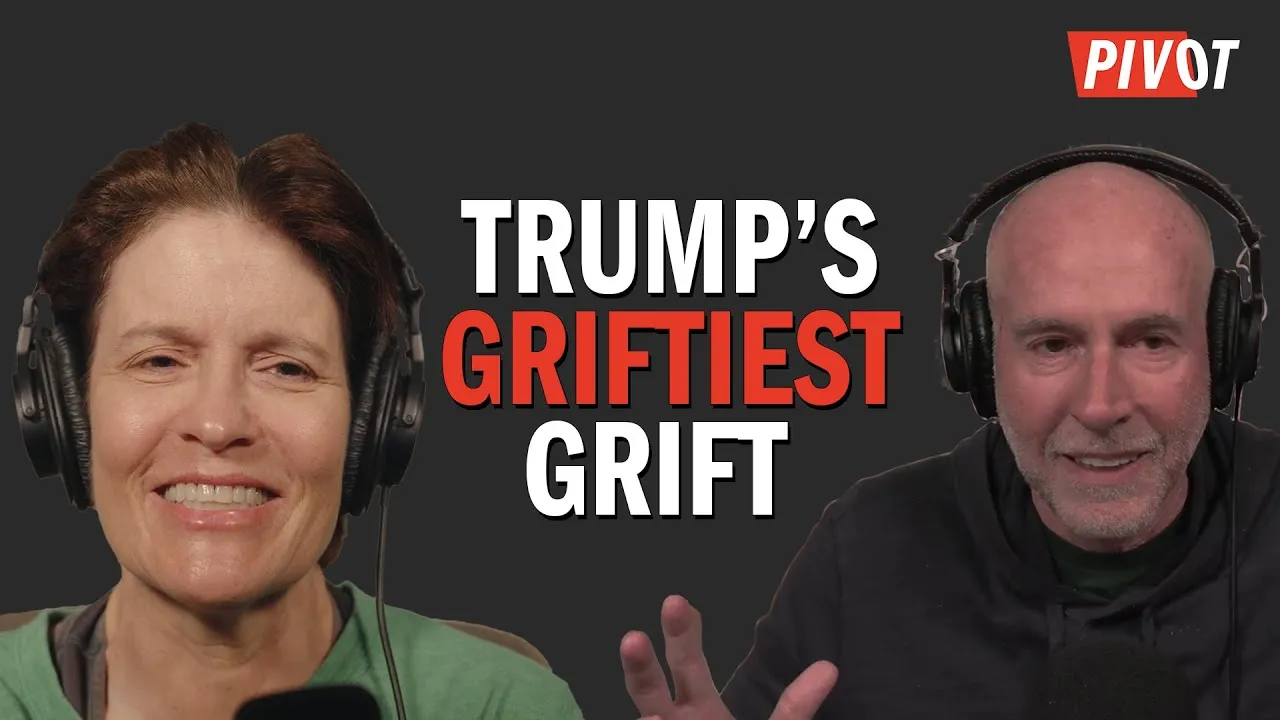Table of Contents
Trump’s $400 million jet gift from Qatar isn’t just extravagant—it’s a warning shot about how political influence is bought, sold, and laundered in plain sight. The implications stretch beyond luxury optics and touch the foundations of foreign policy, ethics in office, and the global perception of American power.
Key Takeaways
- Trump’s acceptance of a $400M Boeing 747 from Qatar blurs the line between foreign diplomacy and personal enrichment.
- Qatar’s simultaneous funding of Hamas raises deep contradictions for Trump’s public stance on Israel.
- The gift exposes structural gaps in U.S. laws regulating foreign influence, ethics, and presidential libraries.
- This isn't just another grift—it’s emblematic of a geopolitical transaction masquerading as diplomacy.
- Critics argue it exemplifies America’s weakening credibility as a neutral actor on the world stage.
- Qatar’s broader influence campaign includes multibillion-dollar investments in U.S. universities, real estate, tech, and think tanks.
- The optics: the richest nation on Earth relying on an autocracy to outfit its former president—via a Boeing jet with gold-plated interiors.
- The long-term cost? Erosion of trust in democratic institutions and further normalization of corruption in global diplomacy.
A Presidential Gift or a Geopolitical Gambit?
- Qatar’s luxury-retrofitted Boeing 747-800 was initially designated for Air Force One before being “donated” for Trump’s post-presidential library.
- Critics say the aircraft’s double use—government and private—reflects a legal sleight of hand that provides plausible deniability.
- Ethics experts highlight the absence of clear legal precedent for gifts of this magnitude, especially involving dual commercial and symbolic utility.
- While the plane is technically intended for a library, it remains under a trust structure Trump can access and potentially monetize.
- The move came alongside Qatar awarding Ivanka Trump-related charities new funds and greenlighting construction permits tied to the Trump Organization.
- The broader concern is that this plane is just the most visible part of a sprawling influence infrastructure quietly accumulating leverage over American politics.
Why This Matters for U.S. Foreign Policy
- Qatar’s history of playing both sides—U.S. military ally and financier of Hamas—is strategically calculated.
- Hosting CENTCOM’s regional headquarters while funding adversarial non-state actors like Hamas is a form of diplomatic arbitrage.
- Trump’s embrace of Qatari wealth, even after labeling Islamic extremism as a core threat, sends contradictory signals.
- It emboldens autocracies seeking Western legitimacy through soft power investments rather than alignment of values.
- Meanwhile, bipartisan foreign policy actors are left attempting to rationalize inconsistent engagement with Middle Eastern states.
- This deal sharpens the geopolitical dilemma: can the U.S. both criticize and cash checks from the same regimes?
The Broader Qatari Influence Machine
- In addition to university donations, Qatar owns stakes in London real estate, Volkswagen, and the Empire State Building.
- Al Jazeera, while independent in brand, remains a state-funded media tool amplifying Doha’s preferred narratives.
- Several U.S. think tanks receive funding from Qatari-linked donors—leading to editorial reluctance in criticizing Qatari policy.
- Qatar has hired over a dozen D.C. lobbying firms since 2017, often former State Department and Pentagon officials.
- The same nation now linked to Trump’s jet also funds cultural and educational initiatives designed to frame itself as a liberalizing Gulf outlier.
- These contradictions underscore Qatar’s genius in creating moral ambiguity—hosting both forward-thinking research centers and reactionary political actors.
Political Theater and Ethical Bankruptcy
- The timing of the gift—amid Trump’s reelection campaign—makes it not just an ethical hazard but a political one.
- Past presidents have accepted books, art, and ceremonial gifts—not full-size commercial aircraft with luxury salons.
- Trump’s defenders argue that no law was broken, but opponents stress that legality is not morality.
- This isn’t just grift—it’s an active redefinition of what’s acceptable from elected leaders.
- Kara Swisher calls it “soft autocracy”—not coups, but creeping normalization of moneyed loyalty.
- Scott Galloway compares it to banana republic politics—lavish personal rewards in exchange for future diplomatic compliance.
- The consequence isn’t jail—it’s a permanent dent in civic norms and expectations.
American Brands in Decline?
- America’s moral authority—once rooted in rule of law and fair play—is now compromised by elite impunity.
- Galloway says the dollar’s brand is weakening globally not just from inflation but from reputational rot.
- In survey after survey, younger populations worldwide cite distrust in the U.S. as stemming from hypocrisy and commercial exploitation.
- Foreign direct investment into U.S. assets is down, while capital flows to countries with perceived stronger rule-based frameworks are up.
- The jet deal becomes symbolic: when prestige is for sale, influence flows to the highest bidder.
- The bigger risk? A global shift in alignment—economically, culturally, and strategically—away from Washington.
Conclusion: When Corruption Becomes the Operating System
This isn’t just about a jet. It’s about whether the world believes America stands for anything besides itself. When diplomacy becomes theater and law becomes loophole, power is no longer earned—it’s inherited by the shameless. That’s not leadership. That’s branding gone feral.





